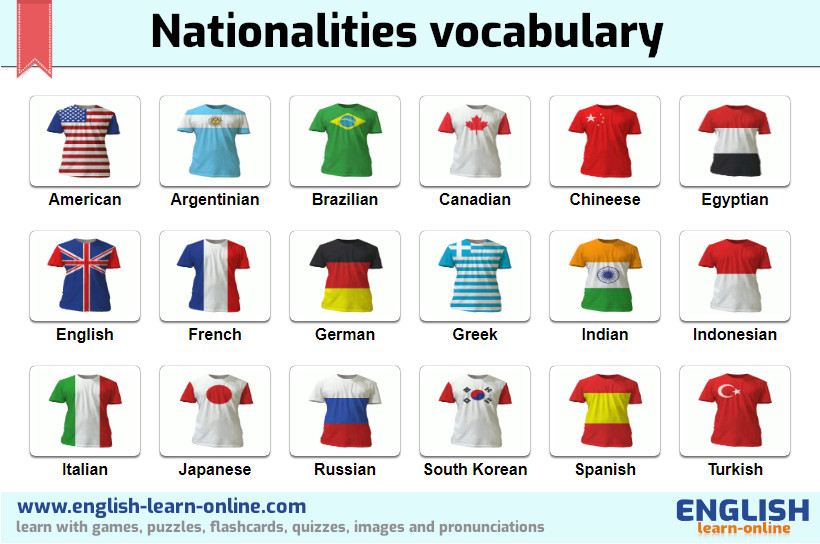
After the introductory text has been read out, the representative asks questions to the visitor about the country they come from. The information they need to listen for includes the nationality of the people, capital city, geographical location and facts about the country. The representative from that country reads an introductory text to the visitor who listens for specific information in order to answer questions on a card. The visitors go to visit the representative of the first country on their card. The visitors are from other countries in Asia. The other six students take on the roles of visitors to the representatives' countries. In groups of 12, six students take on the roles of representatives for different Asian countries. In this country information role-play activity, students ask and answer questions in order to find out factual information about 12 Asian countries. The student with the most cards at the end of the game wins. The first student to do this wins and keeps the two cards. The two students then race to find the corresponding capital city card and give it to the reader, saying the name of the capital city at the same time. One student picks up a country card and reads out the country on the card to the other two students. Next, students play a game where they race against each other to match capital cities to countries. The student with the most cards at the end of the game is the winner. If the cards do not match, the student turns them back over. The student then keeps the cards and has another turn. 'Bangkok is the capital city of Thailand'. If the two cards match, the student makes a sentence using the two cards, e.g. In groups, students take it in turns to turn over a country card and a capital city card. Students begin by playing a pelmanism game where they match countries and capital cities together.
#Countries and nationalities exercises free
Arabian Nights is a famous film the Arabian Sea).Here are two free country and capital city games that students can play to learn the names of countries and their capital cities. We use Arabian in a few fixed expressions and place names (e.g.

We use Arabic for the language spoken in Arab countries the normal adjective is Arab (e.g. The Brits have a bad reputation in some countries. The short form of British, Brit, is often used as a noun (or less commonly as an adjective) in journalistic style and in informal situations to refer to British people: The ancient Britons built huge earthworks to bury their kings and leaders. Nowadays we use the noun Briton only to refer to the ancient tribes that lived in Britain: We use the adjective Scotch to refer only to food and drink from Scotland e.g.


The Scots themselves prefer the adjective Scots and it also occurs in the compounds Scotsman and Scotswoman. Irish also refers to citizens of the Irish Republic. However, everyone from Northern Ireland has the right to Irish nationality and can hold an Irish passport. Some people from Northern Ireland refer to themselves as British in the context of the United Kingdom of Britain and Northern Ireland. The United Kingdom refers to England, Scotland, Wales and the six counties of Northern Ireland. (Great) Britain refers to the territory of England, Scotland and Wales. English is not used for Scottish or Welsh or Northern Irish people. When we talk about the United Kingdom (UK), English is not the same as British. Not: They have studied american literature. We use a capital letter when we refer to a nationality, a language, a country and a region: Russian is difficult to learn, isn’t it, especially the alphabet?

Not: Do you speak the Chinese? or Do you speak Chinese language? In this case, the words are nouns and may be modified by adjectives. The name of a national language is commonly the same as the national adjective. – an adjective: Turkish, Japanese, German, Brazilian, Asian – the plural expression the … used for the whole population of a country or region: the Turks, the Japanese, the Germans, the Brazilians, the Asians – a singular noun that we use for a person from the country or region: a Turk, a Japanese, a German, a Brazilian, an Asian – the name of the country or region: Turkey, Japan, Germany, Brazil, Asia When we refer to a nation or region, we can use:


 0 kommentar(er)
0 kommentar(er)
